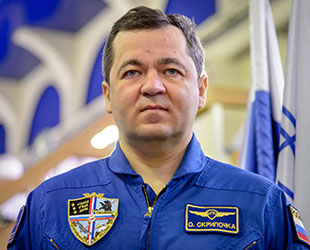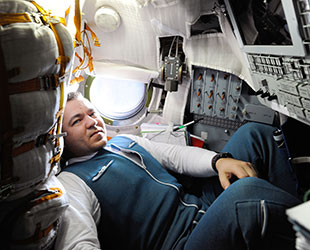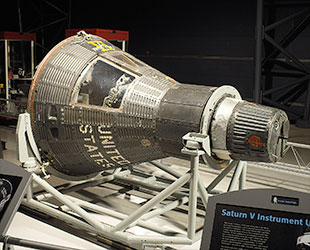March 17, 2016 — A Russian cosmonaut launching to the International Space Station will set a new first by flying on the last spacecraft of its type.
Oleg Skripochka will lift off Friday (March 18) at 5:26 p.m. EDT (2126 GMT) on board Russia's Soyuz TMA-20M from the Baikonur Cosmodrome in Kazakhstan. Joining him on board the vehicle for the six-hour flight to the space station will be his fellow Roscosmos cosmonaut Alexey Ovchinin and NASA astronaut Jeff Williams.
But it will only be Skripochka who sets the new first, as a result of this being his second spaceflight.
A veteran of the Soyuz TMA-01M mission to the station in 2010, Skripochka will become the first person in history to fly on both the maiden and final flights of a spacecraft.

Oleg Skripochka is seen ahead of his Soyuz TMA-20M qualification exams on Feb. 24, 2016 in Star City, Russia. (NASA/Bill Ingalls) |
Bookended
Russia launched its first crewed Soyuz spacecraft back in April 1967. In the five decades that followed, RSC Energia – the company that builds the Soyuz – has rolled out new versions of the vehicle, advancing the Soyuz to the Soyuz T, Soyuz TM, Soyuz TMA and Soyuz TMA-M.
The Soyuz TMA-M replaced the older spacecraft's analog main computer with a digital model, swapped out obsolete equipment with modern devices and improved the craft's structure by using aluminum rather than magnesium alloy.
"The improvements are rather significant," said Scott Kelly, who flew with Skripochka and cosmonaut Alexander Kaleri on board Soyuz TMA-01M in October 2010. "The displays that the cosmonauts and myself use to control the vehicle have been upgraded to make flying it easier."

Russian cosmonaut Oleg Skripochka on board Soyuz TMA-01M on docking day with the International Space Station in 2010. (NASA) |
Eighteen more TMA-M spacecraft followed that first one to space — including TMA-16M and TMA-18M that delivered Kelly to and from the space station for his recently-ended almost year-long mission.
Now, Energia is ready to introduce another new Soyuz, the MS, which is planned as the final model of the vehicle. The MS incorporates more efficient solar panels, an upgraded approach and docking system and a new communications system that lets the Soyuz relay data through satellites.
Skripochka, Ovchinin and Williams were originally training to fly on the first Soyuz MS, but a delay in the introduction of the Progress cargo version of the new spacecraft led to the crew's reassignment to Soyuz TMA-20M, the final ship in the older series of crewed ships.
Hence, Skripochka's flights will bookend the Soyuz TMA-M program.
First bid at first and last
Skripochka's entry in the historical list of space firsts was purely coincidental. He did nothing to affect his nomination to the Soyuz TMA-01M and TMA-20M crews. But he may have come in a distant second had an astronaut gotten his way — 53 years ago.

Alan Shepard's "Freedom 7 II" Mercury capsule is displayed today by the Smithsonian having never launched into orbit. (Smithsonian) |
Alan Shepard, who in May 1961 became the first American to fly into space aboard his Mercury capsule "Freedom 7," was not seeking a first when he began lobbying NASA and the President of the United States to let him launch on one last Mercury mission. The astronaut even went so far as to have the spacecraft labeled "Freedom 7 II."
Ultimately though, NASA decided it was time to move onto the Gemini spacecraft and Shepard's orbital Mercury-Atlas 10 mission was canceled. He would fly again, although not as the first, or last, but rather the fifth man to walk on the moon.
